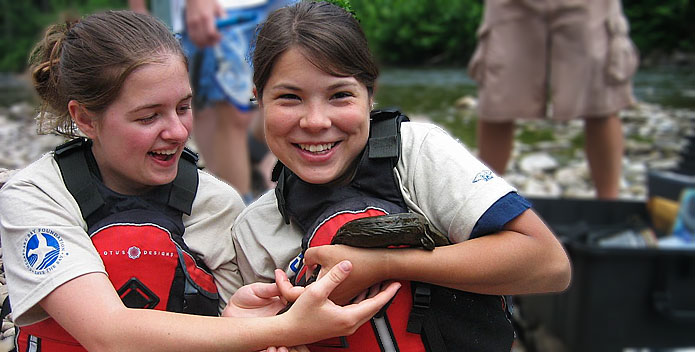When I think about the most powerful and memorable learning experiences I had as a student, I don’t remember the books or the tests or my teachers’ names. What I do remember are the hands-on outdoor experiences exploring our environment. I was so fortunate to have teachers that understood the power of these experiences. They understood that these moments outdoors empowered their students to use their voice and minds in unique ways. These experiences and teachers fostered a development of skills that a textbook can’t teach. They understood that creating environmentally literate students, would in turn create environmentally literate, successful adults.
After months of hard work, environmental education professionals and advocates in Pennsylvania have squashed a serious threat to environmental education standards. The final-form amendments to the proposed secondary science standards—amendments that establish a fifth domain that includes environment, ecology, and agriculture—were recently published in the Pennsylvania Bulletin.
The creation of a fifth domain is a major victory in the fight to ensure meaningful scientific education for future generations. Additionally, it provides an opportunity to include Meaningful Watershed Environmental Experiences (MWEEs) in education at all levels.
What is a Meaningful Watershed Educational Experience?
MWEEs, at their roots, support high-quality teaching and learning by actively engaging students in building knowledge and meaning through hands-on experiences. The MWEE is not curriculum, but rather a framework that focuses on tangible experiences that support standards and curricular goals.
As with other problem and project-based approaches to learning, MWEEs provide standards-driven student learning within the context of life-relevant, real-world problems or phenomena. Investigations frequently take place on school grounds or with a field-based education provider like CBF. Finally, MWEEs culminate in student action projects, which can take many forms, including environmental restoration or protection, everyday choices, community engagement, and civic action.
These experiences:
- empower students to become more engaged in their learning;
- support student achievement;
- advance 21st century career-readiness skills;
- promote a strong connection to place; and
- support environmental stewardship and civic responsibility.
These new education standards will take effect on July 1, 2025, adhering to the Pennsylvania Department of Education’s commitment to a three-year implementation window. They will allow for students’ exploration of and commitment to our state’s natural heritage, including forestry, fishing, and farming—as well as preparing them for future careers.
Tarrea Potter, CBF’s Pennsylvania Education Outreach Coordinator



